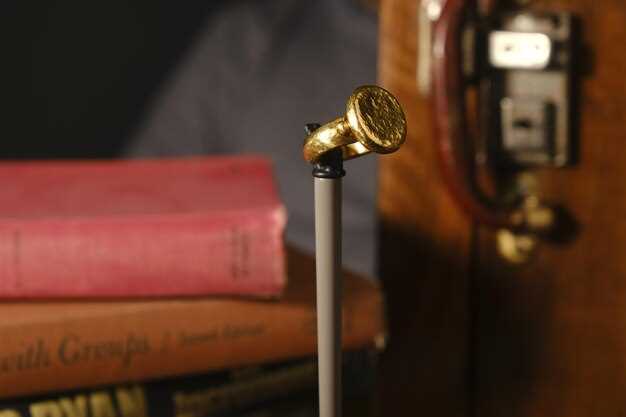Upcoming Laws That Could Impact Classics

The landscape of classic car and collectible ownership is on the brink of transformation as new legislation begins to emerge across various jurisdictions. These proposed laws represent a significant shift in how enthusiasts will be able to enjoy, restore, and invest in their beloved vehicles. The intertwining of regulatory frameworks with industry trends is poised to shape the future of the market, driving both opportunity and challenge.
As collectors and automotive aficionados navigate this evolving environment, understanding the implications of these new laws becomes crucial. With sustainability and environmental concerns taking center stage, lawmakers are increasingly focused on the impact of classic cars on modern cities. From emissions standards to restoration practices, the future of classic car ownership will hinge on adapting to these regulatory changes without compromising the heritage and value of these timeless pieces.
In the coming years, compliance with these emerging laws will determine the fate of many classic cars and collectibles. Enthusiasts must stay informed to safeguard their investments while embracing the evolution of automotive culture. The implications of future legislation will not only reshape the way classic cars are treated but also redefine the community of collectors who cherish them.
The Impact of Emission Standards on Classic Car Ownership
The introduction of new emission standards is transforming the landscape of classic car ownership. These legislative changes aim to reduce environmental impact, but they also pose challenges for enthusiasts and collectors. Classic cars, often characterized by older technologies and fuel consumption, may not meet these stringent regulations.
As governments worldwide adopt more aggressive laws targeting emissions, classic car owners face increasing scrutiny. In some regions, vintage vehicles may require costly modifications to comply with updated norms. This can lead to significant financial burdens for collectors who wish to preserve the authenticity of their vehicles while also adhering to the law.
Furthermore, the growing number of restrictions could limit the ability to drive classic cars in certain areas, particularly in urban environments where low-emission zones are becoming prevalent. Such regulations could diminish the joy of owning these vehicles and potentially decrease their market value.
Some jurisdictions are exploring exemptions for classic cars, recognizing their historical and cultural significance. Advocacy groups are working to ensure that classic car ownership remains viable, navigating the complex interplay between preserving automotive heritage and adhering to modern environmental responsibilities.
Ultimately, the future of classic car ownership hinges on how effectively lawmakers balance the need for environmental sustainability with the passion and commitment of collectors. The ongoing dialogue will shape the reality for enthusiasts as they navigate a landscape increasingly influenced by new emission standards.
Tax Implications for Collectible Vehicle Transactions

Tax implications surrounding transactions involving collectible vehicles, such as classic cars, can be complex and vary significantly by jurisdiction. When purchasing or selling these vehicles, it is essential to understand the applicable laws and how they affect both buyers and sellers.
When a classic car is sold for a profit, the seller may be subject to capital gains tax. This tax is imposed on the difference between the sale price and the original purchase price, adjusted for any improvements made to the vehicle during ownership. The rate of capital gains tax can vary based on the length of ownership and the seller’s income level.
Buyers should also consider sales tax, which may be assessed at the time of purchase. The laws governing sales tax can differ from state to state, with some states offering exemptions for vehicles classified as collectibles. Understanding the correct classification is crucial to determine the tax obligation accurately.
In addition, documentation of the transaction is vital. Sellers should provide detailed records, including proof of purchase and any refurbishment expenses, to substantiate their claims regarding capital gains during tax filings. Buyers should retain records of their purchase to ensure compliance with any applicable laws in their jurisdiction.
Another consideration is the potential for property taxes on collectible vehicles. Some states impose annual taxes based on the appraised value of classic cars. Owners should be aware of these requirements to avoid penalties and maintain compliance.
Finally, tax laws surrounding collectible vehicles are subject to change, which may impact future transactions. Staying informed about legislative developments is crucial for both collectors and investors in the classic car market. This awareness helps ensure that both parties are fully compliant and prepared for any changes that could affect their financial obligations.
Regulations on Restoration and Modification of Classic Cars

As the popularity of classic cars continues to soar, so do the regulations that govern their restoration and modification. New legislation aims to protect the integrity of these vehicles while balancing the need for automotive innovation and personalization.
One significant aspect of these regulations is the definition of a classic car. Typically, a vehicle must be at least 25 years old to qualify, allowing it to be distinguished from newer cars. This classification is crucial because it affects what modifications owners can legally make without compromising the car’s historical value.
Restoration practices must adhere to guidelines that prioritize originality. The goal is to preserve the car’s heritage, meaning that any restoration must utilize parts that are either original or closely replicate the original specifications. This is vital for maintaining the car’s market value and historical significance.
Modifications made to classic cars are permitted, but owners must navigate specific legal frameworks. For example, upgrading safety features or improving efficiency is often acceptable; however, extensive alterations that significantly change the vehicle’s identity can lead to issues with legality and registration. Owners should consult local regulations to ensure compliance with emissions, safety standards, and vehicle classification.
The rise of electric conversion for classic vehicles introduces a new layer of regulation. As new technologies emerge, lawmakers are defining how these modifications will impact the vehicle’s classic status. Converting a classic car to electric power can offer benefits such as improved performance and reduced emissions, but it may also challenge the definition of what constitutes a classic car.
In conclusion, the restoration and modification of classic cars are under increasing scrutiny as legislators seek to protect automotive heritage while embracing innovation. Car enthusiasts must stay informed about these evolving regulations to ensure that their beloved vehicles can be enjoyed for generations to come.



